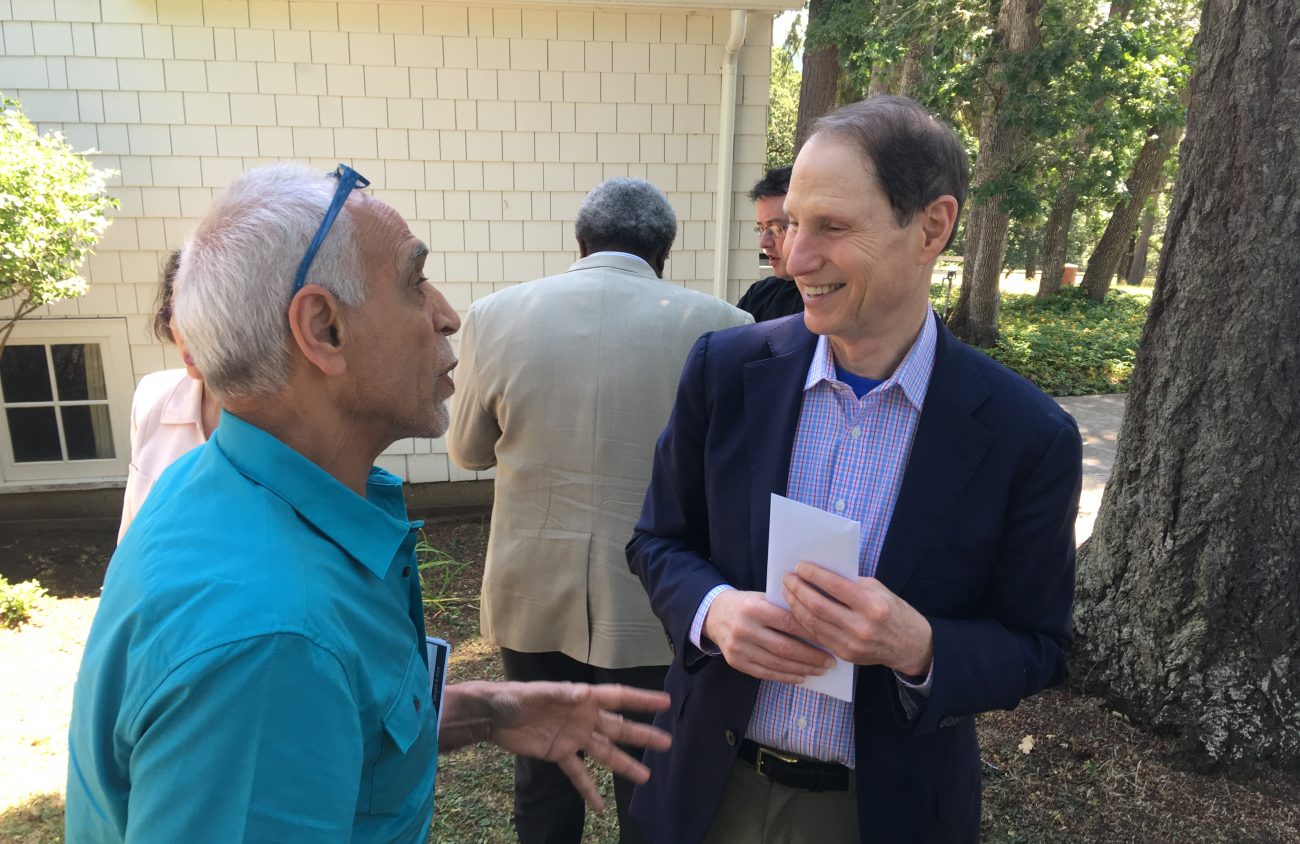Inside the Wayne Morse Family Farm house, you can find the name of then-future senator Ron Wyden on a phone message for Sen. Wayne Morse.
Somewhere inside the house, you can also find a photo of Wyden with a full head of hair talking with Morse. It’s a special place for Wyden and that’s what inspired him to host the final stop of his First Amendment tour at the farm.
The July 5 gathering featured a diverse congregation of religious leaders — including an Episcopalian priest and two Palestinians (one Christian and the other Muslim). Eighteen representatives attended to discuss the concerns they have of practicing their religion under the Trump administration.
“My father fled the Nazis,” Wyden said before he opened the discussion with the faith leaders. “He taught himself English and talked himself into the Army. My father wouldn’t think the Muslim ban is what our country is all about.”
What followed was an hour-long roundtable of people concerned about practicing their faith during the Trump presidency.
Adam Briddell, associate pastor at First United Methodist, said he has a congregant in his church who attends Western Oregon University and is currently protected through the Deferred Action for Childhood Arrivals (DACA). Because of the Trump administration’s shaky commitments to continuing the 2012 Obama executive order, the congregant is worried about her upcoming DACA check-in.
“Fear is a part of her life,” Briddell said. “I can’t imagine that.”
After the roundtable discussion, Wyden told Eugene Weekly that he thought Sen. Ted Kennedy and former President George W. Bush “had it right.”
“They said we would have appropriate technology and security at the border. We would respect the laws on the book today,” he says. “If an individual was undocumented, they’d pay a fine. If they showed they mastered English and hadn’t committed any other crimes, they’d get on the path to citizenship.”
The impact of repealing the Johnson Amendment would impact how people practice their faith. Currently, faith leaders have avoided taxes because of the Johnson Amendment, endorsed by Lyndon Johnson.
One member at the event said they worry religious groups will cut back on contributions to people in need to instead support political movements if the amendment is repealed.
Wyden said he didn’t support repealing the amendment then and is concerned because it’ll be considered soon.
“This will be back. Let me just tell everyone one of you as faith leaders,” Wyden said. “Many church leaders, when they heard about this … said we do not want to see the church turned into the partisan pulpit.”
For Rev. Dr. Craig S. Pesti-Strobel if the Johnson Amendment is repealed, he wouldn’t start using the pulpit to say God had chosen a certain candidate or politician, he says. The Bible isn’t necessarily a political document, he adds.
“But it deals with people in society. And how is that we create conditions where every body can thrive in society, which to me is sort of a basic definition of justice,” he says.
Wyden’s stop in Eugene was the final stop in his First Amendment tour during the Fourth of July work period in Oregon. Throughout Oregon, he had themed stops including freedom of press, freedom of assembly marked by his 900th town hall and walking in Ashland’s Fourth of July parade.
